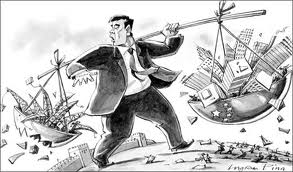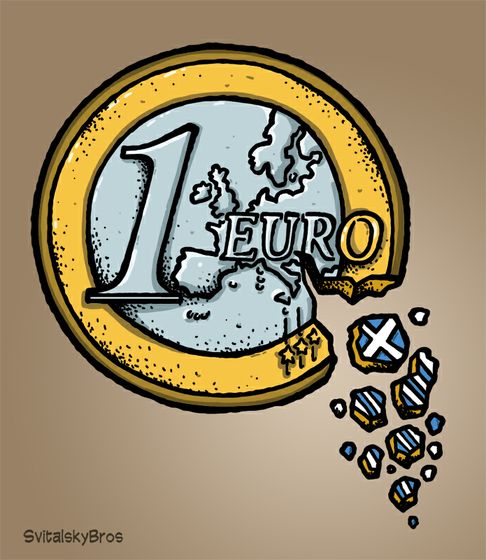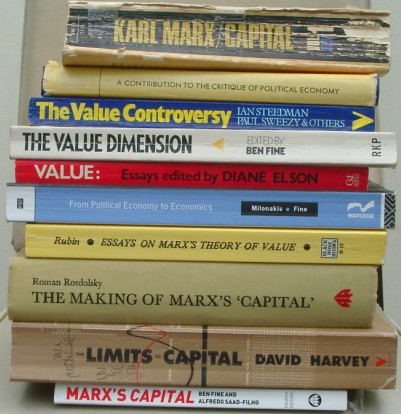
This will never be finished so I will publish now.
Clarifying the meaning of and distinguishing between the words: value, wealth, quality and money
Suitcase words: Marvin Minsky (The Emotion Machine) has coined this marvellous term to describe words that are not clearly defined and mean different things to different people. For example, Consciousness is a suitcase word. It can mean unifier, self awareness, identity, animator of the mind, provider of meaning, detector of feelings. It refers to many different mental activities that don’t have a single cause or origin. In part Minsky’s book is about the need to create a new vocabulary in order to discuss the workings of the mind.
So, let us discuss the value suitcase. Over the years it has become a very large suitcase with many thousands of words devoted to different interpretations of value theory resulting in a tangled mass of incoherent vocabulary.
I start with the folk perspective because what we pick up as the everyday background noise of the meaning of words does influence our understanding when we get around to analysing those words in more detail. We cannot properly acquire new understandings without first subjecting our old understandings to critical scrutiny. No construction, without destruction.
Here are some popular uses of the word value:
1) Tom is good value, ask him to do the job
2) That car is good value for money
3) Gold increases in value during economic recessions
4) Steve Jobs adds value to Apple shares
5) The role of a teacher is to add value to their students
6) It was a valuable experience to attend that Noel Pearson lecture
So, in folk use, value might be used to describe an attribute of a person, a commodity (two examples, car and gold), a business, a process or an experience. In some cases there is a close connection between value and money (sentences 2 and 4) but in other cases it refers to the ability of certain people to successfully transfer their skill to a job of work or to other people. It can also refer to a learning experience. In all of these cases value is a good thing and the more value there is the better.
In Capital, Marx doesn’t start with value. He starts with the commodity and then splits the commodity into something which possesses both use value and exchange value. It turns out later that exchange-value is the form of appearance of value. Exchange value is “observable” in a transaction. For example, one 32GB USB stick = 20 litres of Pura full cream milk. We can equate these values in real life but more realistically in our imagination and it does not have to involve money. Value is the underlying category, an abstraction, a theoretical underpinning of exchange-value.
In Marx’s terms value has a form, a substance and a magnitude. The form of value is its capacity to be exchanged. The substance of value is embedded abstract labour. The magnitude of value is the amount of embedded labour or socially necessary labour time. This thumbnail needs to be discussed in more detail later.
Marx clearly distinguishes between value and use value. For Marx value is a social product (or in his language, a social form). It only exists in a commodity society, a society where products are produced and sold to others. For Marx value does not exist, or only exists in embryonic form, in primitive society where hunters and gatherers are mainly working for themselves. For Marx value is historically contingent whereas use value is not. Use value refers to the properties of products that make them useful. For example, a car is useful for transportation. This is true irrespective of whether it is bought and sold in the marketplace. Marx makes a radical separation between the usefulness of products (true for all social systems) and their value, which is only true for products which are made to be sold in the marketplace. Such products are defined as commodities.
What is the difference between the folk perspective of value and the Marx perspective of value?
Well, Marx mercilessly dissects or interrogates the commodity and teases out a variety of meanings and distinctions (use value, exchange-value, value). For Marx value becomes a central theoretical concept which is complex in its own right, having social form, substance and magnitude. But for Marx a line is drawn between value and use value.
So, looking again at the starting sentences and adding some annotations about what the folk use of value means in each case:
1) Tom is good value, ask him to do the job (Tom is useful at work of an unspecified character)
2) That car is good value for money (I am prepared to exchange my money to buy that car)
3) Gold increases in value during economic recessions (Gold is special for unstated reasons because it is always valuable, even in economic crises)
4) Steve Jobs adds value to Apple shares (some individuals excel at their value interventions in the capitalist system because of their creative design and marketing skills)
5) The role of a teacher is to add value to their students (in the “knowledge economy” value can refer to added knowledge too; the teacher transfers their knowledge to their students)
6) It was a valuable experience to attend that Noel Pearson lecture (an experience can be valuable or personally enriching in its own right)
The folk usage of the word value does either mean or imply the similar concepts which Marx discovers in the commodity (usefulness, exchangeability), adds on a few more (creativity, knowledge transfer, enrichment) and then fuzzily blurs them all together. In folk usage value is a suitcase word. Folks are using the word value as a suitcase whereas Marx is starting with the commodity and meticulously teasing out various meanings in his analysis.
The folk perspective on value and Marx’s perspective also deviate when it comes to labour saving or productivity increasing technology. With technological progress the value of manufactured products decreases. They become cheaper to buy in the marketplace.
I said above in relation to the six introductory sentences which illustrate a variety of usages of value, that,
In all of these cases value is a good thing and the more value there is the better
But now I am pointing out that as technological productivity increases then the value of the manufactured products decreases. That experience is part of popular consciousness. We all know that we possess more products than our parents generation. We possess them because we can afford them since comparable items are cheaper relative to our wages than they used to be. But does the concept of declining value universally enter the popular consciousness?
7) Commodities are cheaper for my generation than previous generations. We’ve never had it so good!
There may be some awareness of this truth but it is not general folk wisdom. Why not?
Well, often prices don’t go down. Rather you buy a fancier equivalent of the commodity you want for the same price. You are getting more value for money but not getting the feeling that things are cheaper in an absolute sense. Windows 7 replaces Windows 6. It really doesn’t do anything different but has a few extra bells and whistles so you end up paying a similar price. In reality, absolutely free alternative operating systems such as Ubuntu are equivalent and better in some ways (no viruses).
Some prices do go up. For example, land, petrol, electricity, internet access in Australia.
It is cheaper to build a house now than previously, due to technological and organisational development. The house is cheaper but the land is often more expensive due to supply and demand for good location.
Petrol prices are subject to the control of a cartel (OPEC)
The price of electricity goes up due to lack of forward planning by governments who don’t build surplus capacity in good time.
The National Broadband Network (NBN) is potentially a good idea but due to government incompetence it is rolled out in a more expensive fashion than is needed.
Environmental costs contribute to rising prices. Once again, governments are generally incompetent in managing these issues, Julia’s carbon tax being a good current example.
It is hard to accurately compare our generation with previous generations. This arises from the nature of capitalist development. We have more things but in the main they are different things to our parents possessions. When I grew up we did not own a flush toilet, an electric frig, a TV, a microwave or a computer. They were either invented or became affordable consumer items later. Even the items that are common to both generations differ substantially. Houses and cars are far more sophisticated today, they possess added gadgets and functionality which was not present previously. This rough comparison makes it obvious that the current generation has far more material possessions than previous generations. The value of producing equivalent and / or better commodities has declined over time mainly due to productivity improvements.
What is the difference between value and wealth?
In folk usage wealth may refer to:
8 ) There are a wealth of ideas in the mind of that intellectual
9) James Packer is wealthy (aka filthy rich)
10) Capitalism increases the wealth of society but that wealth is distributed unevenly
If you substitute wealth for value in my original sentences it doesn’t work out. You wouldn’t say:
1′) Tom is good value wealth, ask him to do the job
2′) That car is good value wealth for money
5′) The role of a teacher is to add value wealth to their students
but you could say:
4′) Steve Jobs adds value wealth to Apple shares
This is because value means more than the finished product or money. It also means or implies productive labour. Wealth doesn’t fit in those sentences because it usually refers more to the end product or the market value of the end product than the productive labour required to obtain that product.
Marx and his predecessors also distinguished between value and wealth. Wealth is the sum of all use values irrespective of whether they require labour. Hence unadorned natural products, eg. virgin land, are part of wealth but not part of value. In Marx’s terms nature is not a source of value. Marx approved of his predecessor William Petty in distinguishing between labour and nature as sources of wealth:
“Labour is … not the only source of material wealth, ie of the use-values it produces. As William Petty says, labour is the father of material wealth, the earth is its mother.” (Marx, vol 1)
Wealth is the sum of all use values, which are concrete and particular. Wealth originates in both nature and labour. This applies to any society. Value is a creature of capitalism or a society where commodities are exchanged in the market place and display their exchange-value there.
What is the difference between value and quality?
In Marx’s terms value is not metaphysical. By metaphysical I mean broad trans historical concepts which attempt to define meaning in a permanent or grandiose sense. Marx’s analysis is relevant to capitalism, not all of history. Marx is not writing a theory of everything to last for all time but is doing a specific critique of capitalism and classical political economy, the partly correct then existing theories of his predecessors Adam Smith, David Ricardo and others.
It is a different approach to my memory of the sense in which Quality is discussed at length in Pirsig’s Zen and the Art of Motor Cycle Maintenance. I had the sense there that if only the slippery concept of Quality could be grasped then that would be similar to solving the riddle of life itself.
However, folk usage does not always embrace metaphysical texts. In folk usage there is not a clear distinction made between value and quality. If you take the sentences I began with:
1) Tom is good value, ask him to do the job
2) That car is good value for money
3) Gold increases in value during economic recessions
4) Steve Jobs adds value to Apple shares
5) The role of a teacher is to add value to their students
6) It was a valuable experience to attend that Noel Pearson lecture
For most of them you could substitute the word quality for the word value. It is only in sentence (3) that this substitution does not work. This is because the phenomenon of gold increasing in value during economic recession requires a detailed economic theory to explain it. Even though the sentence is part of folk usage the explanation of that sentence is not.
What is the difference between value and money?
From the original sentences value is measured in money terms in sentences 2 and 4 or at least the connection is clear:
2) That car is good value for money
4) Steve Jobs adds value to Apple shares
In folk terms the value suitcase is much broader than money and encompasses usefulness, creativity and experiences as well.
For Marx value originates from labour and evolves into a universal equivalent, gold money, which further evolves into paper money. But for Marx value is in motion. The capitalist uses money or credit to buy labour and means of production, proceeds to a production process, sells the resultant commodities and finally invests more into the production process in a continual cycle. Value moves through this whole process dynamically.
So value is far more than money in both folk and Marx’s usage but in different ways.
The folk connotation of value is that it is a good thing, that valuable things (people, commodities, experiences) are worth having. This is different from the Marxist understanding, that value is a creature of capitalism an underlying theoretical concept which is the staring point to explain the motion of the whole capitalist system. For Marx, value is the starting point for further analysis and understanding of capitalism.









Recent Comments